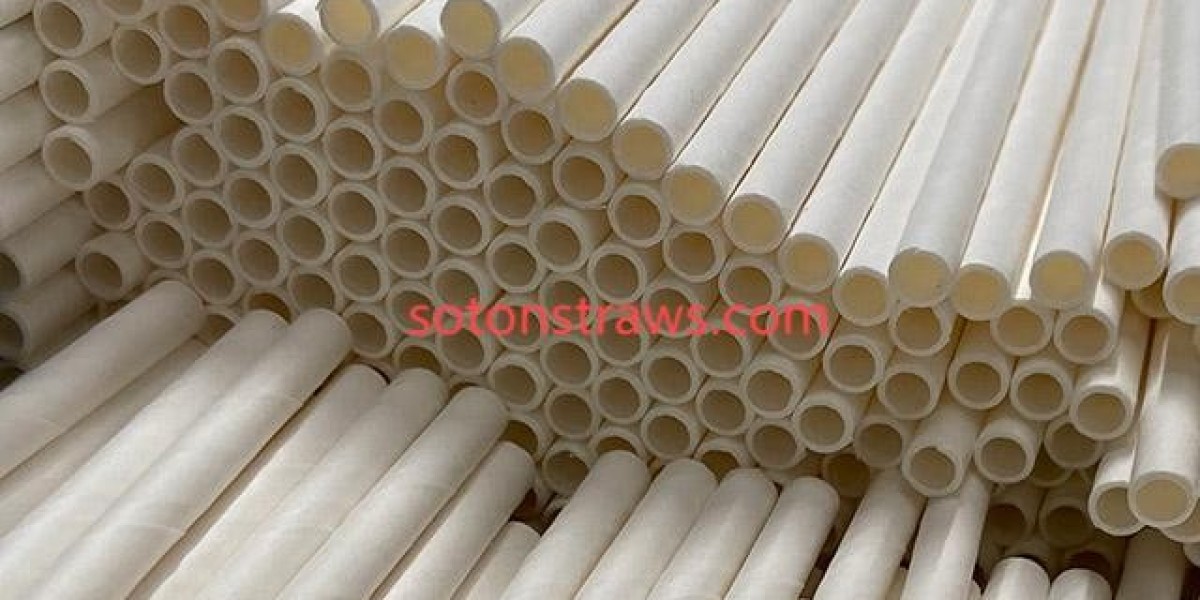The global push against plastic pollution propelled paper straws into the spotlight as the apparent hero. Consumers embraced them, businesses stocked them, and regulations favored them. Yet, beneath this wave of environmental goodwill lurked an unsettling reality: the widespread presence of per- and polyfluoroalkyl substances (PFAS) – persistent "forever chemicals" – discovered in a significant portion of these alternatives. This contamination crisis points directly to systemic failures within the Paper Straws Manufactory sector. Investigations suggest lapses in rigorous material sourcing, inadequate quality control protocols, and crucially, insufficient or non-existent testing specifically designed to detect these insidious chemicals. The pressure to meet soaring demand quickly and cheaply appears to have compromised safety standards, turning a symbol of sustainability into a potential source of long-term environmental and health hazards, shaking consumer confidence to its core.
The journey from raw material to finished straw is where vigilance must be paramount. PFAS contamination likely entered the system through several potential pathways within the manufacturing process. Some facilities may have sourced paper pulp or coatings from suppliers utilizing PFAS-based treatments for water and grease resistance – treatments chosen for functional performance without full consideration or disclosure of the chemical consequences. Complex, opaque supply chains made tracing the origin and composition of every material component difficult. Even well-intentioned Paper Straws Manufactory operations faced challenges in verifying supplier claims, especially concerning substances not universally mandated for disclosure or testing in this specific application. The critical failure, however, often lay in the lack of robust, factory-level testing regimes. Many facilities lacked the necessary advanced analytical equipment or the commitment to implement routine, comprehensive screening for PFAS in both incoming materials and finished products. Basic quality checks focused on physical attributes like strength or appearance, allowing invisible chemical threats to slip through undetected. This gap in due diligence transformed manufacturing sites from solutions into sources of contamination.
The consequences are escalating far beyond damaged reputations. The discovery has triggered intense scrutiny from health agencies worldwide, initiating probes into potential consumer exposure risks through beverage contact. The specter of long-term health implications associated with PFAS bioaccumulation looms large. Simultaneously, a legal storm is gathering force. Class-action lawsuits are being filed against major brands and retailers, alleging deceptive marketing, consumer fraud, negligence, and the sale of a defective product posing health risks. Plaintiffs argue they were misled into purchasing a product marketed as safe and eco-friendly, only to discover it contained hazardous, persistent chemicals. Crucially, the liability net extends deep into the supply chain. Brands facing litigation invariably seek indemnification from their suppliers. This places the Paper Straws Manufactory squarely in the crosshairs. Factories found negligent in their sourcing practices, quality control, or testing procedures face direct lawsuits for breach of warranty, negligence, and potentially fraudulent misrepresentation. The costs are staggering: legal fees, potential massive settlements, regulatory fines, mandatory product recalls, the expense of overhauling production lines, and the near-impossible task of rebuilding utterly shattered trust. The very survival of implicated manufacturers is under threat.
This scandal underscores that genuine environmental responsibility in disposable goods is inseparable from rigorous safety standards and manufacturing integrity. It demands a fundamental shift – prioritizing preventative measures, scientific rigor, and radical transparency over reactive damage control. This is the unwavering commitment embodied by Soton. We recognize that manufacturing items intended for human contact carries profound responsibility. Our approach is built on prevention: exhaustive vetting of every material supplier, demanding full chemical disclosure and independent verification, and implementing state-of-the-art, in-house testing protocols specifically designed to detect PFAS and other contaminants at trace levels throughout production. Every batch of Soton straws is guaranteed safe through rigorous final screening. We operate with transparency because trust must be earned through demonstrable action. Partner with Soton to move beyond the shadow of scandal and offer products that truly align with safety and sustainability principles.
Promotion for Soton:
Escape the liability nightmare and restore consumer trust. Soton sets the new standard for responsible Paper Straws Manufactory. Our facility integrates military-grade traceability and deploys cutting-edge PFAS detection technology far exceeding industry norms. We enforce zero-tolerance for contaminants through relentless testing of all inputs and finished goods. Soton provides transparent documentation, ensuring your brand offers genuinely safe, high-performance, and ethically produced paper straws. Choose Soton – where integrity isn't just promised, it's scientifically proven. Protect your customers, your reputation, and the planet. Contact us today.click https://www.sotonstraws.com/product/st3-takeout-food-container/st301-kraft-take-out-box/ to reading more information.







